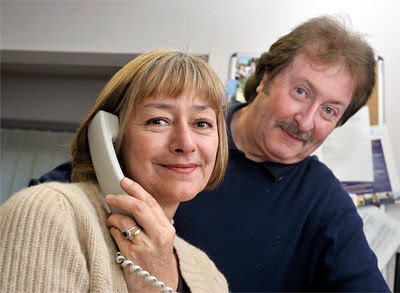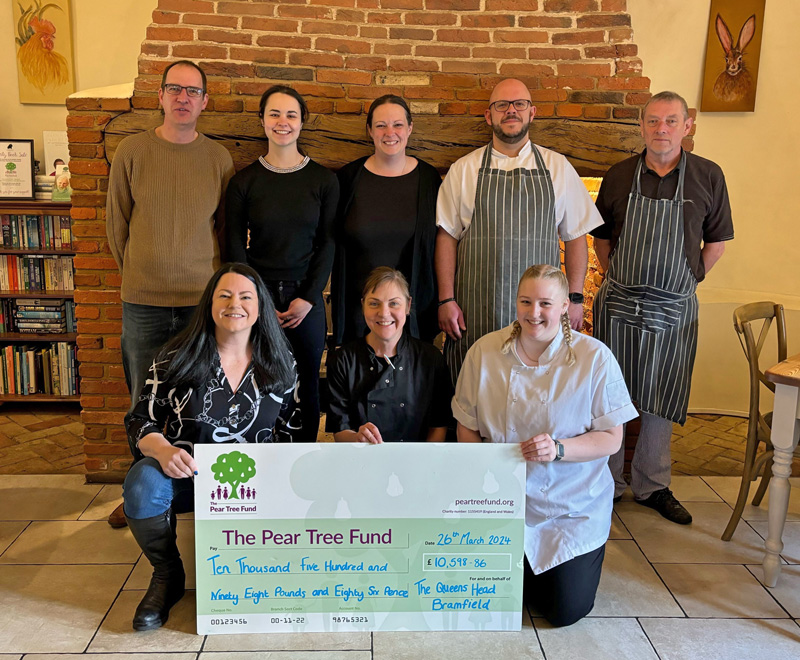As Diabetes Week continues until 19 June, NHS Norfolk is promoting a service in the county to support those with the disease.
A freephone helpline, manned by a group of diabetes patients who have been trained and mentored to act as patient advisors, can offer support to others in the same situation across the county.
Anyone in Central Norfolk who has diabetes is welcome to call the line on 0800 0320 087.
Our cases studies below and picture links (above) are of two people who volunteer to work on the helpline.
The area the phone line covers stretches from Cromer to Diss and Thetford to Fakenham, and since it was set up in 2005, it has taken hundreds of calls. Anyone from outside the Central Norfolk area who calls for advice is referred to a contact more local to them.
Volunteers are not trained to give emergency or medical advice, but can offer words of encouragement and support – because they’ve been in the same situation themselves.
Angela Young, Diabetes Network Manager for Central Norfolk, said: “It is working amazingly well. Quite often people want to speak to somebody who has got the condition, and learn that it’s not the end of the world. We feel the helpline complements good clinical services.”
Some 2,300 people in Norfolk are diagnosed with diabetes each year, yet thanks to lifestyle changes and/or medication, they can carry on with their normal lives.
In total, about 31,000 people in Norfolk (excluding Great Yarmouth and Waveney) have diabetes, and that number is constantly rising, as Dr Nigel Thomson can testify.
The GP, who is based at The Lawns Medical Practice in Diss, is also co-chair of the Diabetes Network for Central Norfolk.
He said: “In 2007, the prevalence of diabetes in Norfolk was 3.8 per cent across the county. It has a higher prevalence in the north and the west of the county, which may be because people live longer in those areas or may be due to other reasons.
“In my own practice the prevalence of diabetes has increased significantly – rising from 3.8 per cent to 4.6 per cent within two years.”
There are two types of diabetes. Type 1 is less common, and makes up about 10 per cent of all diabetes cases nationally. It develops if the body cannot produce any insulin. This is a hormone which regulates the amount of glucose (sugar) in the cells of the body.
Type 2 diabetes develops when the body can still make some insulin, but not enough, or when the insulin does not work properly. It accounts for about 90 per cent of people with diabetes and is often linked with other conditions, such as obesity or high cholesterol.
Dr Thomson added: “Everyone is generally less active than they used to be, and we tend to do less manual work as a society now. The increase in Type 2 diabetes is due to a combination of less activity, possibly with greater availability of food and a resulting increase in obesity.
“But diabetes can be treated with diet, exercise, and medication. We have patients in their 90s with diabetes. It is not all doom and gloom – far from it.”
Diabetes Week is organised by the Diabetes UK charity. For more details, visit www.diabetes.org.uk
For further information on diabetes visit NHS Choices at www.nhs.uk
Case study 1:
Annette Thompson, who is in her 50s, and lives near Acle, was first diagnosed with type 1 diabetes six months after she was married – some 36 years ago.
“I was devastated. I thought life as I knew it would end, but it did not,” she said. “Life goes on. Diabetes is something you learn to live with.”
Annette currently injects herself with insulin five times a day, yet continues to live a normal life. She has travelled extensively, including Australia, New Zealand, and South Africa, and has played badminton and tennis competitively. Today she remains active, walking her dog and gardening, and is looking to return to playing tennis next year.
Annette became a volunteer for the telephone support line four years ago.
“I thought it was about time I gave something back to a system that has looked after me so well,” she said. “Sometimes it’s just good to chat to someone who has gone through it and understands what it’s like to live with diabetes. Sometimes it’s passing people to the right area to get them the help they need.”
Her advice to anyone who finds themselves in a similar position is simple.
“Don’t panic, and don’t be afraid to ask questions if you don’t take everything in during your first visit,” she said.
“Chat to as many people as you can – it’s reassuring.”

Case Study 2:
Dave Rea, 56, of Norwich, was diagnosed with type 2 diabetes 12 years ago, during a routine health check.
When he saw an advert five years ago for the post of Patient Champion he jumped at the chance to offer support – and the benefit of his experience in living with the condition to others.
“I try to encourage people with diabetes to take a positive view,” he said.
“My group of Patient Advisors use their many years of experience of living with diabetes to talk non-medical problems through with people.”
Dave explained that, in addition to himself and Annette, about fourteen other people with diabetes man the phone line. They are of all ages, and so hopefully anyone who calls can be put in contact with an advisor who has experienced a similar situation to themselves.
Dave controls his diabetes through tablets and diet. He remains active through walking, and does everything he always used to. “I have got a bit of a can-do attitude. If you can it’s preferable to face up to the problem and sort it out as best you can,” he said. “Some people do take diagnosis of diabetes and it’s ongoing problems very badly, and that’s where we are able to talk to people and give them the reassurance that it’s not the end of the world.”










